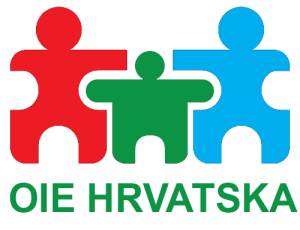Author: Jasmina Trstenjak
The Feed-in-premium model was introduced in Germany in 2012, and the renewable energy sources producers could choose between the premium model and system of guaranteed prices. As of 2016, the premium model became the only one for stimulating new projects with capacities under 500kW, and since 2017 tenders were implemented for the approval of all new incentives. They were quite similar to the planned competitions in Croatia: participants compete and the premium is awarded to the one who offers a price that is lower than the reference price. As opposed to Croatia, where premiums last 12 years, in Germany they last twenty.
The transition to tenders was not easy since numerous EU countries had problems in the development of the tender itself. For that reason the experiences to date are quite relevant in order to successfully adapt the tenders to the specific requirements of various member countries.
Countries with premium systems like Germany and Croatia:
France – premiums in the duration of 20 years
Denmark – premiums in the duration of 20 years
Greece – premiums in the duration of 20 years
Italy – premiums in the duration of 20 years
Lithuania – premium in the duration of 12 years
Germany, which is the largest wind farm market in the EU, has been facing problems for years precisely with wind farm projects. The first tenders for wind farms on shore in Germany in 2017, achieved record low prices for that period: the average winning bid in August was 43EUR per MWh, and in November of the same year is was 38 EUR per MWh. At first glance the numbers suggest that wind farms on shore could be built at a price lower that 38EUR per MWh.
However, the tender system had a number of errors, such as facilitating conditions of participating in the tender for the so called projects of energy communities which did not have to have most of the permits for their projects that all the other participants had to have, prolonged period for completing the project, etc. These disparities came to the fore only in late 2018, when it became known that the installed power of wind farms on shore in Germany dropped by half to 2.4 GW. Analyses showed that a large number of projects which won tenders in 2017 and 2018 would probably never be built.
With tenders announced in 2019 other problems rose – among other, they could not attract a sufficient number of participants. At the tender for on-shore wind farms of 675 MW announced in October, for example, only 204 MW got a premium. The reason was the inadequate quality and maturity of the projects that could compete in the tenders. In other words, there were not enough projects with permits that could participate in the tenders and because of the numerous complicated legal procedures. At three tenders announced last year in Germany quite good results were achieved – 62EUR per MWh, which was at the same time the reference price for tenders in 2019.
The experience acquired in connection with tenders in Germany is varied. The results of various German tenders for renewable energy sources highlight the fact that the level of competition is the key success factor of the tender itself. While there was sufficient competition for solar projects and off-shore wind farms with the tenders achieving satisfying results, those for on-shore wind farms and biomass projects suffered due to the lack of offers.
The reason for the lack of offers are not directly connected with the tender scheme or its development but are the result of the transition from the old incentive mechanism to a new one and increasing challenges in the development phase of the project. The permitting and slack engagement of local communities linked to the development of wind farms, which presently have to invest much more before they even reach the tender stage, resulted in the decrease of installed power. Therefore, good results require an adequate balance between planned tenders and an appropriate permit issuing system.
Lessons from Germany
- The first tender should serve as a test. Germany and other EU member countries learned from their first tenders. Only after this phase thought should be given to increasing the overall offered quantity of power at tenders.
- Too low tender prices of energy increase the risk of not implementing all the projects.
- If the first tenders offer very large volumes, the danger exists that the following ones in the near future will face the problem of attracting bidders which will result in higher premiums.
Read more on the Subject in connected articles:
(I.) Energy Transition: Why we Needed Feed-in Tarrifs and Why we are Switching to Premium Model
(III.) Croatia and the Premium Model: What Will the New System Bring and how Will it Function?
Sources/Literature*
- “Wind energy in Europe: National policy and regulatory developments”, WindEurope, veljača 2020.
- “Najava premijskog sustava poticanja za obnovljive izvore energije u Hrvatskoj”, Nataša Putak, prezentation (28. forum, HED), November 2019
- “Analiza sustava poticaja korištenja obnovljivih izvora energije za proizvodnju električne energije”, DOOR, Zelena akcija, February 2018
- “Analiza isplativosti gradnje vjetroelektrana u Bosni i Hercegovini”, Tomislav Šimunović, PSS Ekonomija energetskog sektora, Sveučilište u Rijeci, February 2018
- “Finalni izvještaj o konceptu za reformu sistema poticaja za obnovljive izvore energije u Bosni i Hercegovini (faza A)”, Radna grupa za reformu sustava poticaja za OIE u BiH, September 2018
- Smjernice o državnim potporama za zaštitu okoliša i energiju za razdoblje 2014. – 2020. (2014/C 200/01), EK
- Zakon o obnovljivim izvorima energije i energetskoj učinkovitosti, NN 100/15, 123/16, 131/17, 111/18
- “Status Review of Renewable Support Scheme in Europe for 2016. and 2017.”, Public report, CEER, December 2018
- “Tendering procedures for RES in Europe: State of play and first lessons learnt”, CEER, May 2018
- “Integracija obnovljivih izvora na tržište električne energije kroz model premija”, Andrea Brajko, Ranko Goić, Slavko Krajcar, studeni 2014.
- “Auctions for the support of renewable energy in Germany”, AURES II, December 2019
*Sources used for the entire series of articles on premium model










